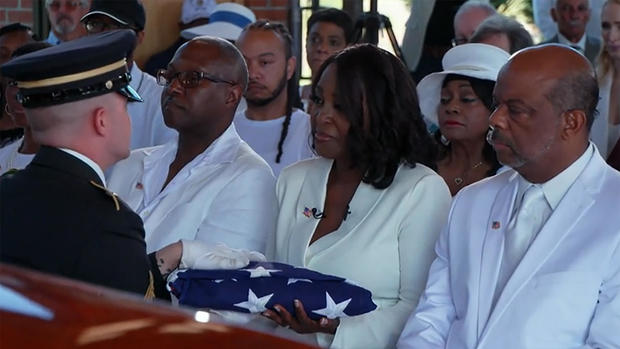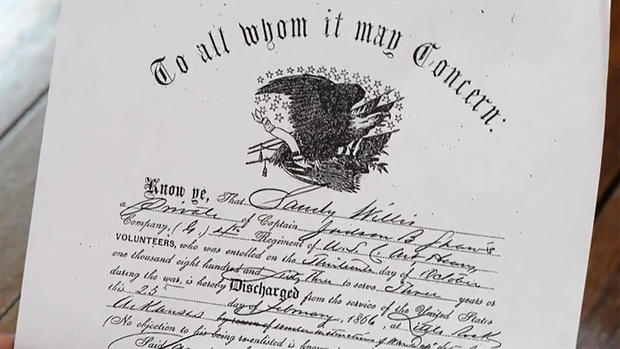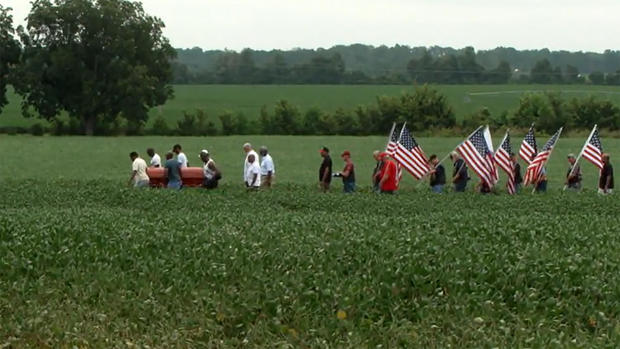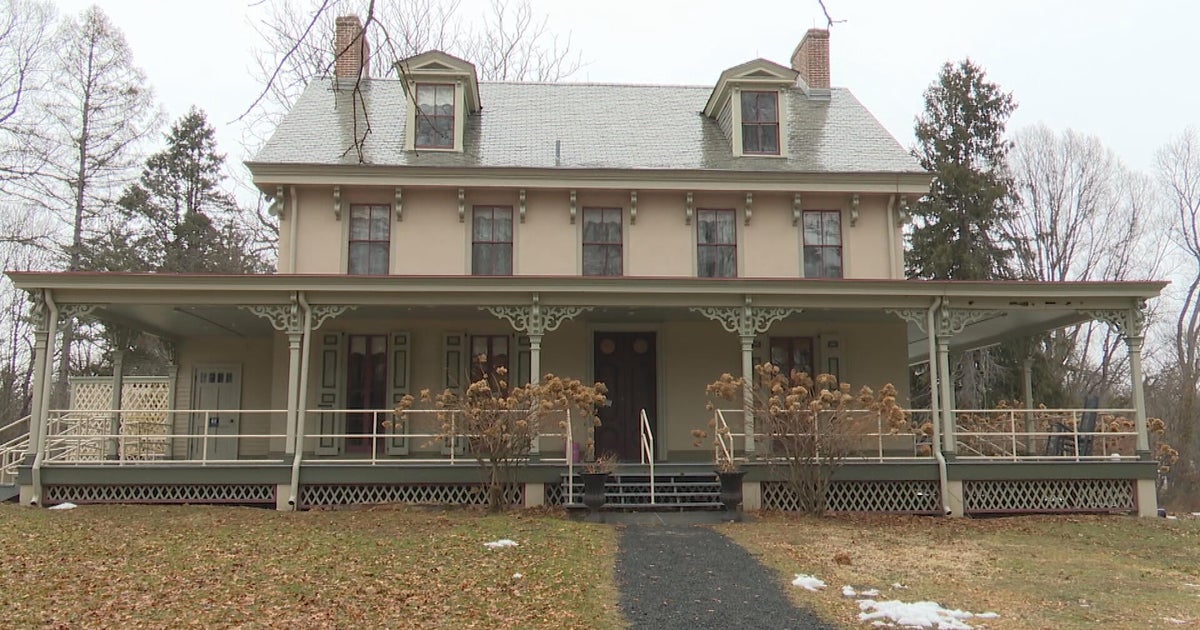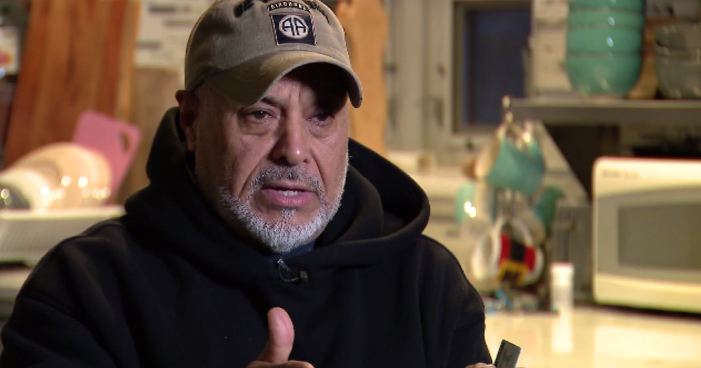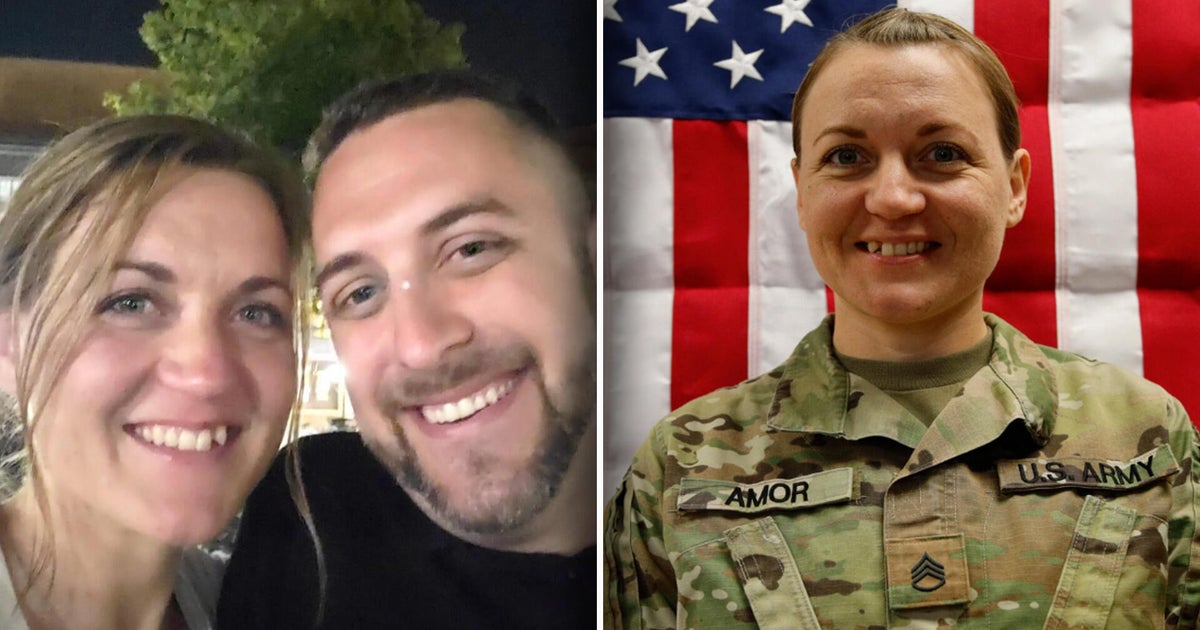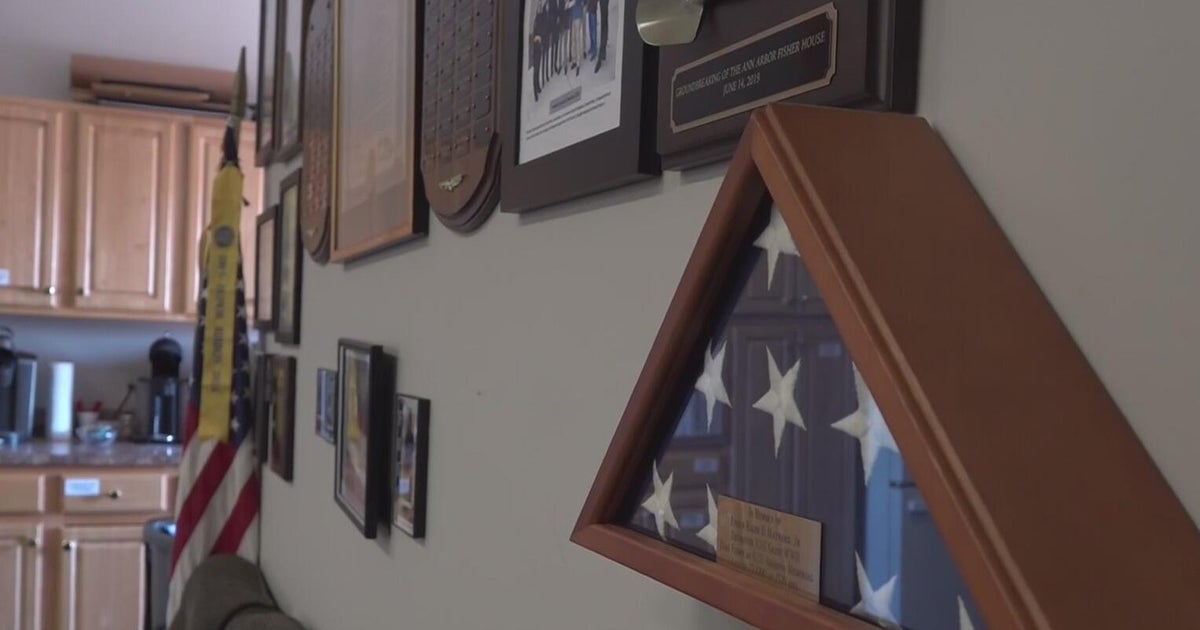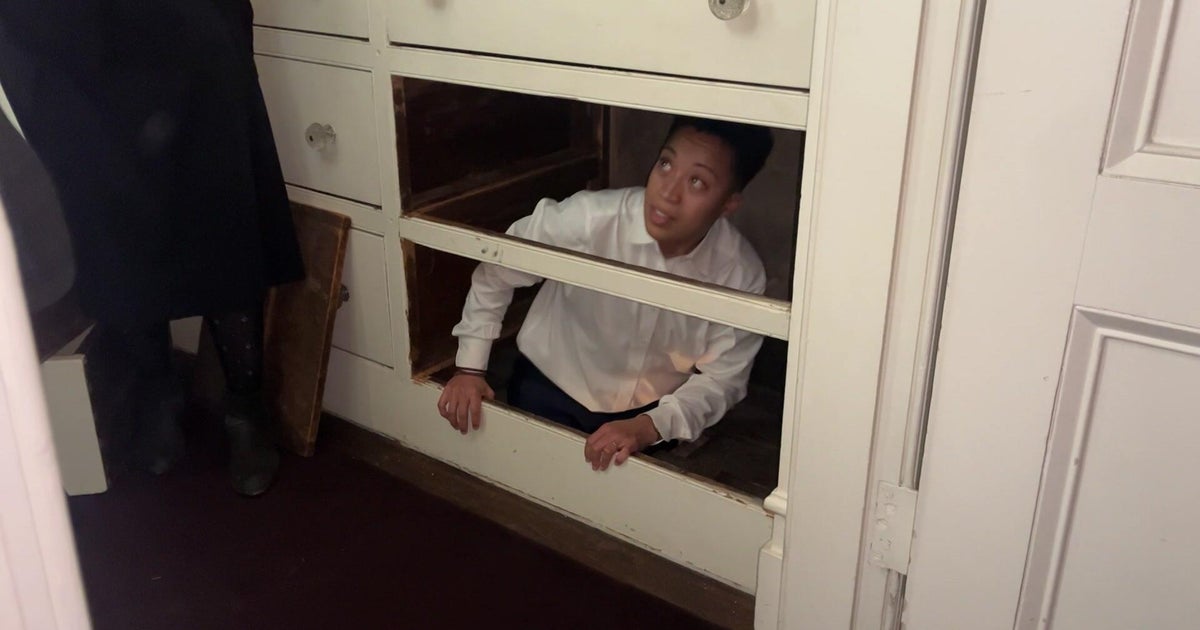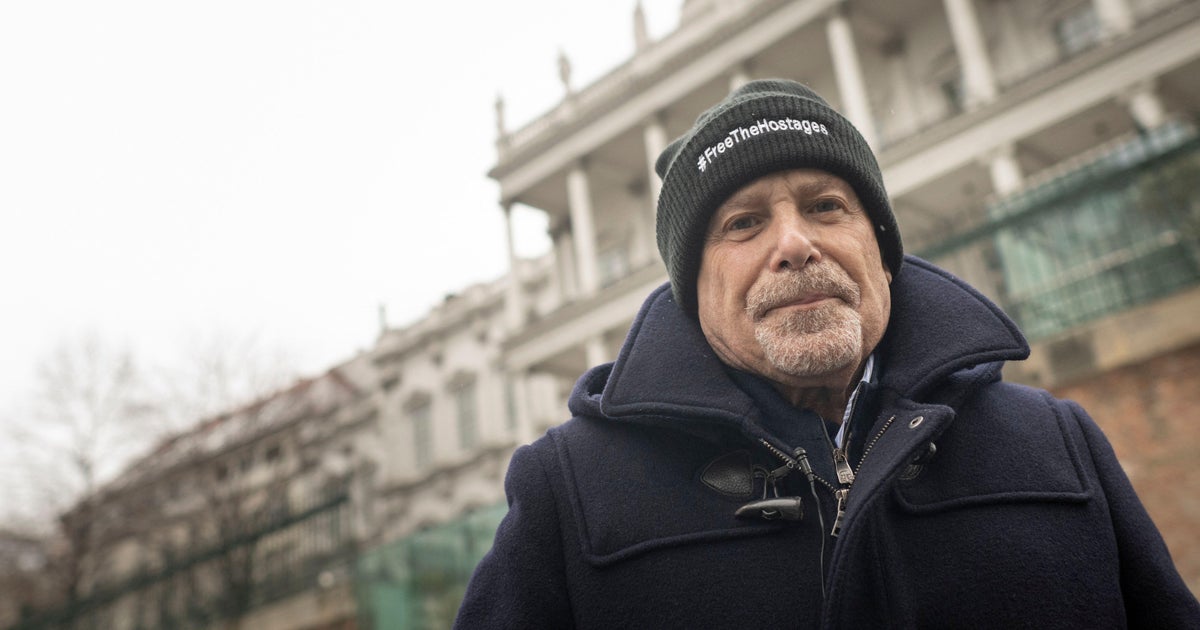Honoring a Civil War veteran who was lost to history
This past August Army Private Sandy Wills was buried with full military honors at a veterans' cemetery in Memphis, Tennessee. Private Wills served his country, though not in this century, or the last. He died in 1889.
He was originally laid to rest in an unmarked grave, a Civil War veteran all but lost to history.
"No one knew about Sandy Wills," said Cheryl wills, Sandy's great-great-great-granddaughter. "An enslaved man leaves a plantation, serves during the Civil War with Lincoln's army, and poof! Like it never happened."
Cheryl didn't know of him, or her family's long military legacy, until she started researching her ancestry. And it was tragedy that first sparked her interest in genealogy.
Her father, a New York City firefighter and Vietnam-era veteran, was killed in a motorcycle accident when she was a teenager. She recalled, "When I sat at his funeral, the one thing that was burned into my heart was when the military honored him. And then they handed my mother a folded flag. And at that moment, I realized my father was special in the eyes of the greatest army in the world."
Like millions of Black Americans, Cheryl's family had left the South as part of the Great Migration. Her grandparents moved from Tennessee to New York City. For the past 30 years, Cheryl, an author and journalist, has been telling other people's stories, all the while knowing little of her own.
When asking her family about the past, she said, "No one knew anything. And that was one question I used to ask them: 'What do you know about slavery?' And they would look at me like, 'What kind of question is that?' Those who lived through slavery, it was like they had this pact: We're not passing this story down. You don't want to know what it was like. So, Sandy's story disappeared from our family."
Combing through census, birth, marriage and death records, Cheryl meticulously traced the roots and branches of her family tree. The earliest ancestor she was able to document: Sandy Wills, who was bought by Willis Wills when he was 10 years old.
The Holy Grail of her search was Sandy Wills' military records. He'd volunteered for the colored troops in 1863 and was honorably discharged. He worked as a sharecropper on the Moore plantation after the war, and married a woman named Emma; they had nine children. Records showed when Sandy died, but Cheryl could find no trace of where he was buried. "He was nowhere to be found, essentially MIA," she said.
Her search did lead her to a living relative, Ethan West, a distant cousin also researching his family. "She was going through finding Sandy, and I've been posting a lot of stuff about my lineage," he said. "And our lineages collided."
She called Ethan her hero: "He physically went down there."
"Down there" is Brownsville, in Haywood County, Tennessee. They both had come across records placing some of their ancestors, including Sandy Wills, on a plantation there owned by the Moore family. "I just wanted to know what this place that we're reading about looked like," said West. "I found the coordinates to where the property would have been."
In 2013, West went driving around Haywood County looking for answers, and literally saw a sign: Mooreland. "And when he texted me that sign, I went, holy guacamole," said Cheryl. "And I think both of our lives changed."
Mooreland is 900 lush acres of cotton, soybeans and pecan trees. Over the years, Cheryl and Ethan would visit, and gradually formed a unique bond with the Moore descendants, telling them of their family's connections to the farm – and their belief that a Civil War veteran was buried on their property.
And the Moores told them something they had hoped to hear – that there is an unmarked African American burial ground on their farm. "They took me there, and for that, I'm eternally grateful," said Cheryl. "Because we had no idea it was there. We only had a hunch."
Cheryl hired an archeology team with experience finding America's missing-in-action from more recent wars. Of the 38 graves they found here, they zeroed in on one – its size, date, and fragmentary remains matched every known detail of her ancestor.
"Sunday Morning" was there with the families and local veterans when Private Sandy Wills' remains were placed in a casket, and solemnly marched from the knoll, through green fields, to a waiting hearse.
Edie Moore, the family matriarch, said that for generations the Moores kept that African-American cemetery on their property untouched. "A farmer would come along and say, 'Oh, if it were me, I would just bulldoze down that clump of trees and plant on top of it," said Edie. "We said, 'No, it's hallowed ground. And we will never ever touch it.' And my husband, he had daffodils that he planted over the whole cemetery."
Knowing it was the resting place for Private Wills, she said, "adds depth to the whole experience."
After the exhumation, the Moores hosted a picnic at the farm – two families connected by this land, and by America's complicated history.
A headstone now marks Sandy Wills' grave at the West Tennessee State Veterans Cemetery. For Cheryl Wills, it's mission accomplished.
"History really meant for him to be anonymous forever," she said. "He was a man without a legacy for 135 years. And now, it's been taken back."
For more info:
- West Tennessee Veterans Cemetery, Memphis
Story produced by Jack Weingart. Editor: Ed Givnish.

